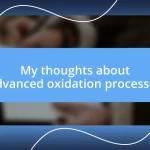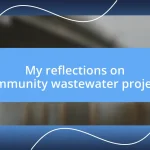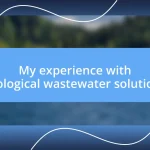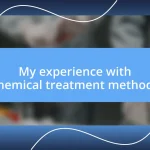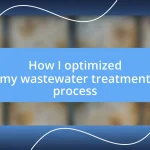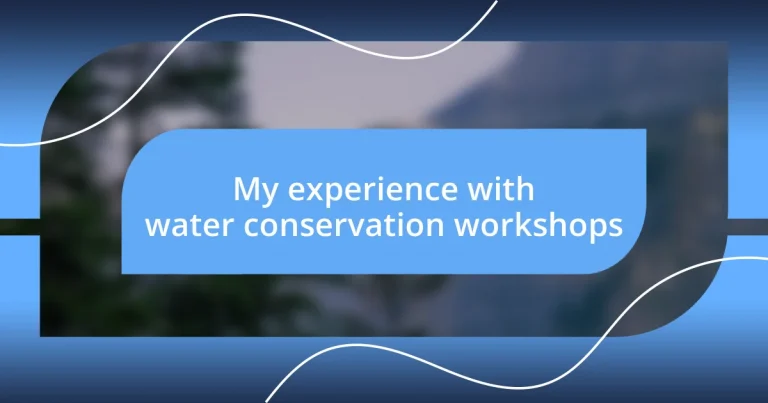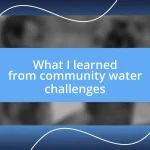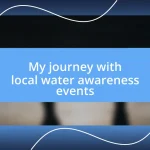Key takeaways:
- Water conservation workshops foster community engagement and empower individuals through hands-on learning, enhancing awareness of personal water usage and its environmental impact.
- Key objectives of the workshops include educating participants about water scarcity, teaching practical water-saving practices, and building a supportive community network for ongoing collaboration.
- Real-life applications of learned techniques, such as installing rain barrels and xeriscaping, lead to personal satisfaction and inspire conversations about sustainable practices within the community.
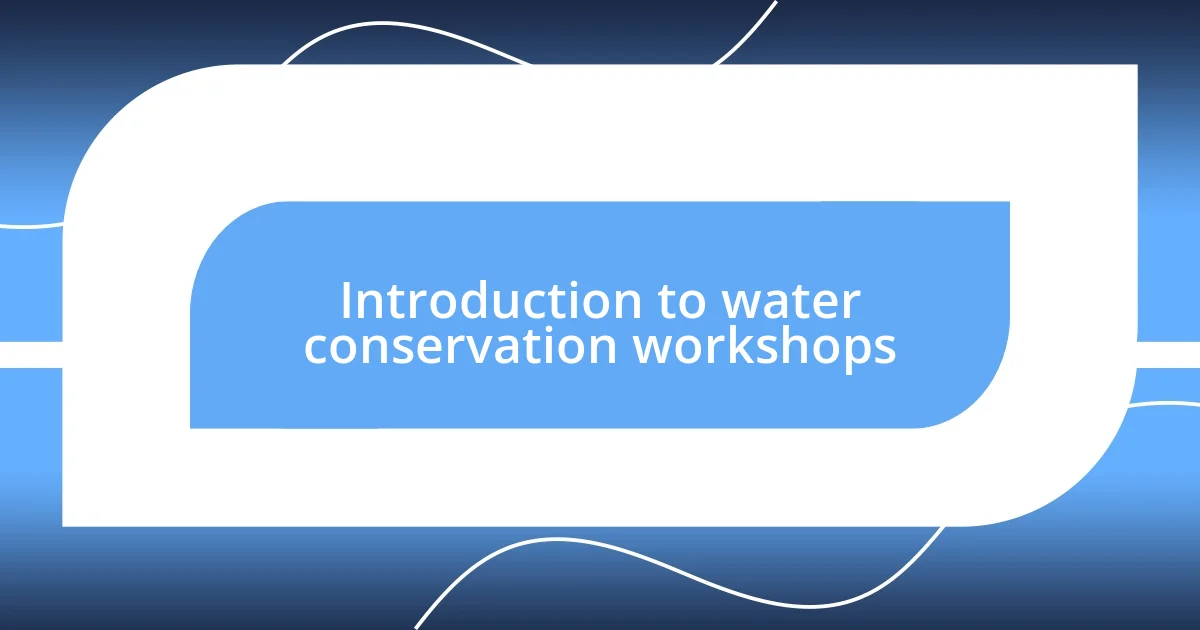
Introduction to water conservation workshops
Water conservation workshops serve as vital platforms for educating communities about the significance of preserving this precious resource. I remember the first workshop I attended; I walked in aware of the general need for conservation but left with a deeper understanding of how my everyday choices impacted local water sources. It struck me—what if everyone had that same awakening?
These workshops are often interactive, encouraging participants to engage directly with the material. I vividly recall planting a rain garden during one session—splashes of rich soil and laughter filled the air—as we learned about capturing rainwater to nurture our surroundings. It made me wonder: how many simple changes can we implement to transform our water usage habits?
Moreover, the emotional connection we build with our environment during these workshops is profound. When participants share their experiences and concerns, it creates a sense of community, a collective urgency to act. Isn’t it fascinating how a shared goal can inspire individuals to become proactive stewards of our planet?
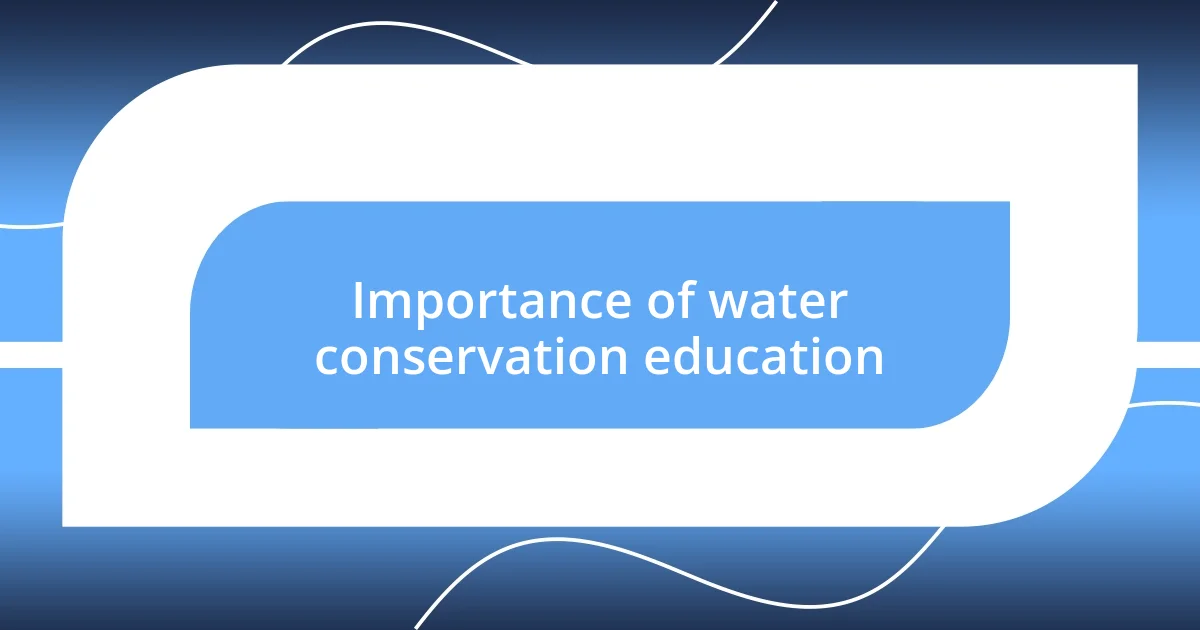
Importance of water conservation education
Understanding the importance of water conservation education goes beyond just facts; it cultivates a deeper appreciation for this vital resource. Through my experiences at these workshops, I realized that knowledge empowers us to make conscious choices. For instance, when we learned about the local watershed and how each drop counts, I felt an urge to contribute positively to our environment. It was eye-opening to see how our actions could ripple through the ecosystem, encouraging me to be more mindful in my daily routines.
- Water scarcity is a growing global issue, making education critical for sustainable development.
- Workshops foster community engagement, allowing attendees to share personal stories and strategies.
- They empower individuals to take action, sparking initiatives like rainwater harvesting or xeriscaping.
- By understanding the local water cycle, attendees can make more informed decisions about their consumption.
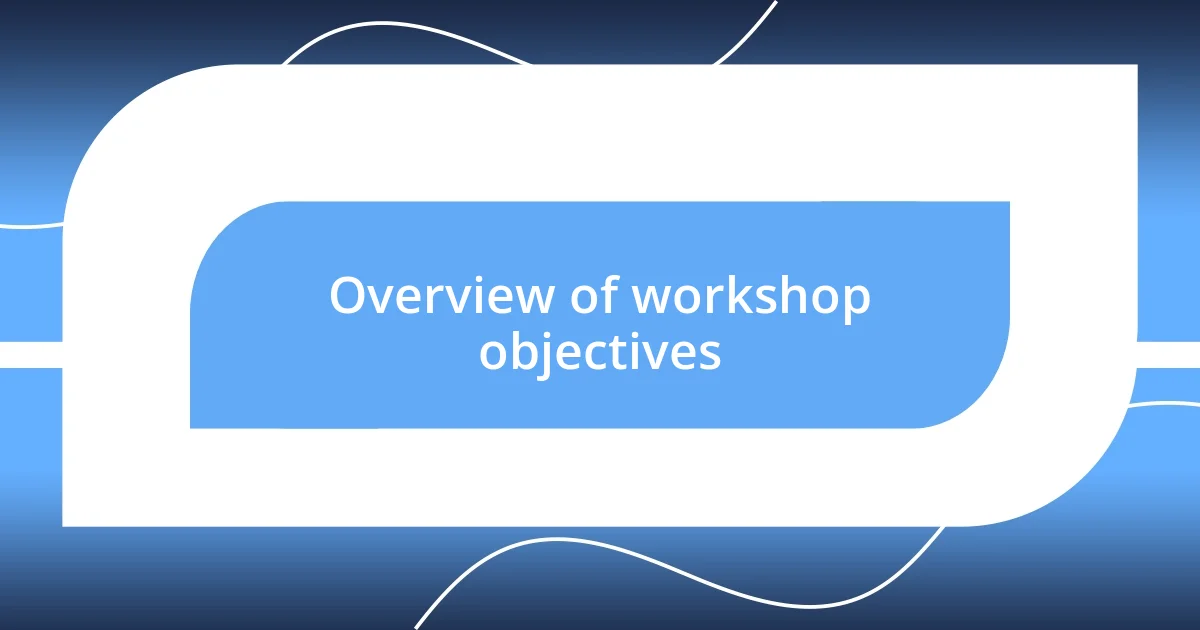
Overview of workshop objectives
The objectives of water conservation workshops are multifaceted, focusing on both education and community engagement. I’ve found that a primary goal is to increase awareness about water scarcity and the importance of sustainable practices. For instance, during one workshop, we were challenged to reflect on our daily water usage, and that simple act of sharing numbers amongst ourselves fostered a surprisingly powerful dialogue.
Another key objective is to equip participants with practical skills for reducing water waste. I still remember the thrill of learning how to install drip irrigation systems. It felt empowering to leave with knowledge that would not only benefit my garden but also contribute to the wider goal of conservation. It made me realize that every little step counts; those skills turned into real changes in my home.
Additionally, these workshops aim to create a supportive community network. The connections I formed during these events have been priceless. It’s comforting to have like-minded individuals to turn to for advice and inspiration. We often share resources or brainstorm innovative solutions, strengthening our resolve to be responsible stewards of water.
| Objective | Description |
|---|---|
| Increase Awareness | Educate participants on water scarcity and the impact of their choices. |
| Practical Skill Development | Teach water-saving techniques like drip irrigation and rainwater harvesting. |
| Community Building | Foster connections among participants for ongoing support and collaboration. |
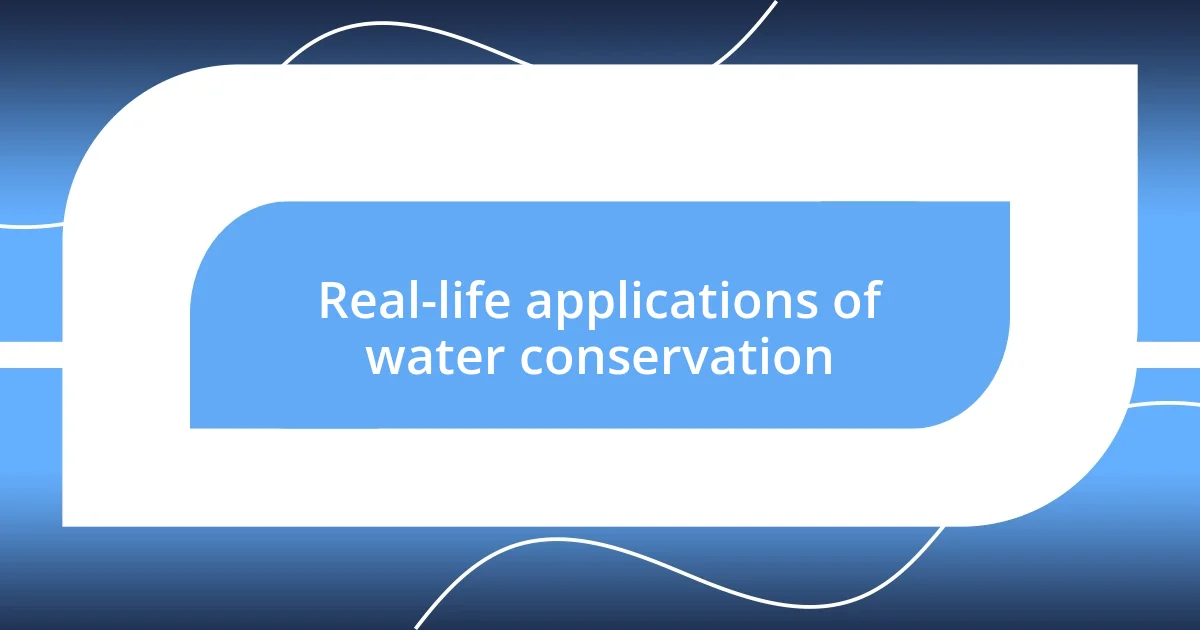
Real-life applications of water conservation
Many of the water conservation techniques I learned during the workshops have become integral parts of my daily life. For example, after installing a rain barrel, I started measuring how much water I could collect with each rainfall. The first time I filled it up after a heavy rain, I felt a sense of pride knowing I was putting that water to good use in my garden instead of relying solely on the hose. Isn’t it fascinating how a small change can lead to such a sense of accomplishment?
I also took the initiative to xeriscape my front yard, replacing thirsty plants with native species that thrive on minimal water. The transformation was not just visual; it sparked conversations with my neighbors about their landscaping choices. I’ll never forget the moment a neighbor complimented my new garden and asked for tips. It was a rewarding experience to share what I had learned, igniting a collective interest in sustainable practices within my community.
Additionally, I recall volunteering for a local cleanup event where we focused on our nearby river. This hands-on experience emphasized the interconnectedness of our water sources and our actions. Lifting litter from the banks, I felt a powerful connection to the environment. It’s moments like these that reinforce the real-life applications of water conservation. Have you ever thought about how your actions can influence your community? Encouraging others to join in the effort can amplify the impact we can all make together.
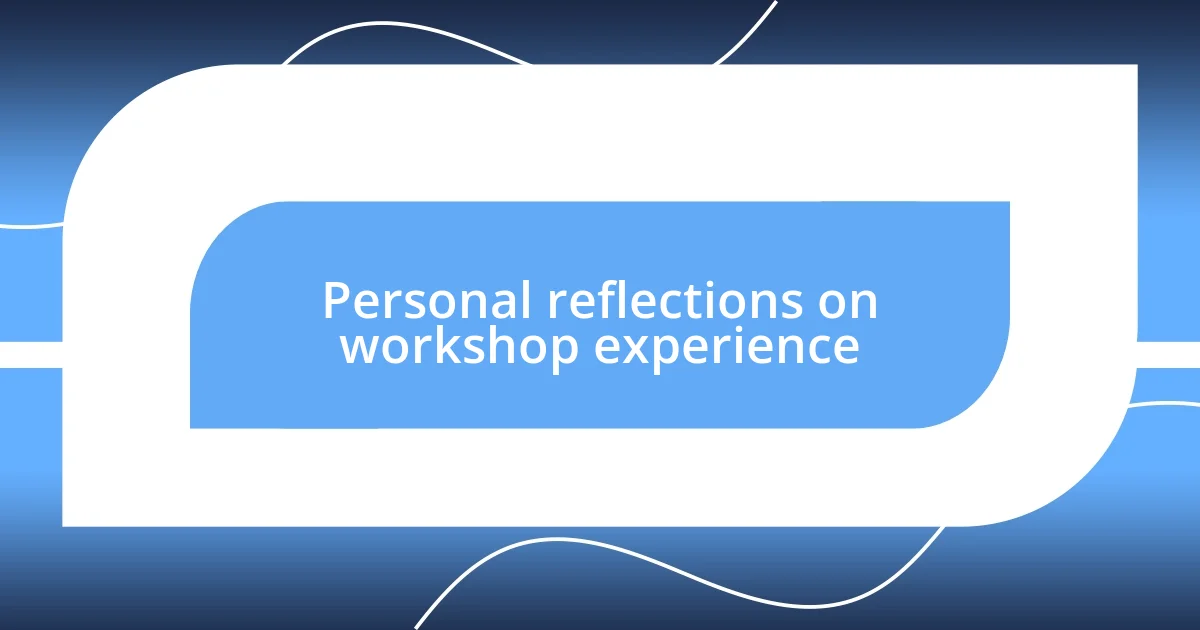
Personal reflections on workshop experience
Reflecting on my experience during the water conservation workshops, I found them to be profoundly enlightening. One moment that stands out is when we engaged in a group activity on calculating our water footprints. I remember feeling a mix of embarrassment and surprise as I realized just how much water I was using without even thinking about it. Sharing those numbers felt like my small missteps were visible, but it also ignited a fire in me to change—not just for myself, but for the community around me.
What I cherished most was the blend of hands-on learning and the camaraderie that developed among participants. During one session, we divided into teams to design a water-efficient garden. The laughter and brainstorming revealed not only our creativity but also our collective commitment. I vividly recall a woman sharing her skepticism about making a difference. Yet, by the end of our session, she left bubbling with enthusiasm, excited to implement what we had learned. That connection was inspiring—it underscored how shared experiences can transform doubt into action.
At times, I felt a wave of vulnerability during discussions about our personal water challenges. One participant confessed to feeling guilty for not doing enough, which resonated deeply with me. It reminded me how hard it can be to juggle awareness and action in everyday life. Yet, in that space, we found strength in vulnerability. I realized that acknowledging our struggles doesn’t denote failure; instead, it’s the first step toward making meaningful changes. Have you ever felt that surge of hope when you’re surrounded by supportive voices? I believe it can truly propel us forward in our efforts to be better custodians of our resources.
